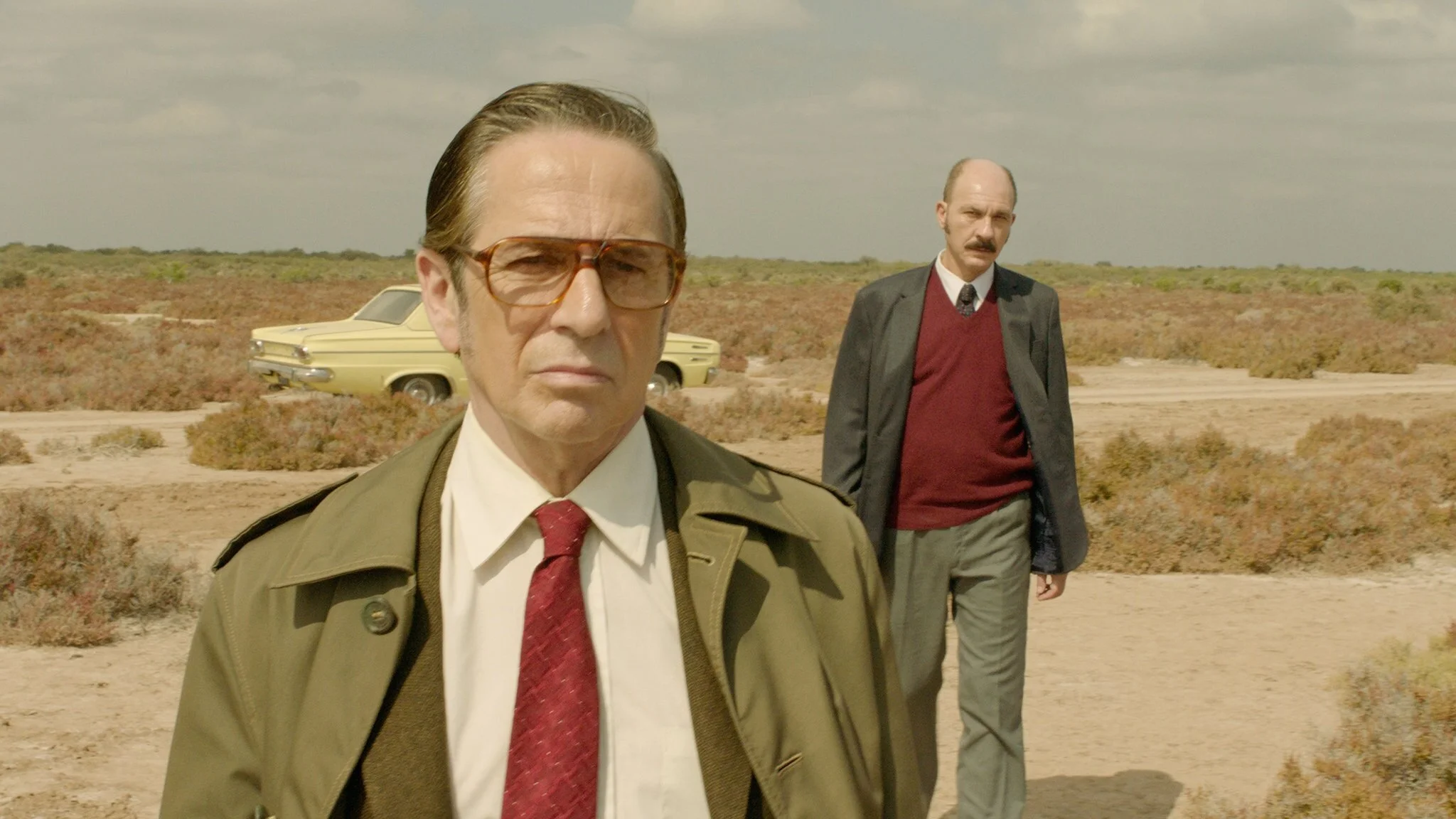Rojo
A striking but ill-balanced work in which the Argentinian period setting is key.
Alfredo Castro and Darío Grandinetti
This is the third feature by the Argentinian filmmaker Benjamín Naishtat who writes his own screenplays. Its predecessors were not released here, but I am given to understand that they had an avant-garde edge whereas Rojo offers a more conventional dramatic structure. It certainly proves that Naishtat is a director with a very sure touch, be it the placing of the camera or the considered use of sound. In effect, he offers a two-part preface which immediately illustrates his skills. First, a long-held static shot shows the exterior of a house now unoccupied as we see people emerge one by one after pilfering its abandoned contents. Next, there is a tension-filled scene in a restaurant. Here the film's central character, the lawyer Claudio (Darío Grandinetti), is at odds with a stranger (Diego Cremonesi). Since Claudio is just sitting there awaiting his wife (Andrea Frigerio), this stranger demands that he yield to him the table which happens to be the only one not already in use. This episode, a neat contrast to the first, is played out with exemplary panache. And only then does the title appear.
Yet for all its qualities there is, I think, a basic weakness in this film. In the past, it has often proved effective when a crime narrative has gripped an audience in its own right while also having something deeper to say as well. However, to succeed in that way the surface story needs to be really powerful. Here we see how Claudio gets involved in an unexpected violent death and in time a man arrives from Chile, Detective Sinclair (Alfredo Castro), to investigate the fate of the man who has died but who at this stage is only known to have disappeared.
This happens in an Argentinian province in 1975 and, given the passing references to Federal intervention and mention too of other people said to have disappeared, it cannot be doubted that Naishtat's real concern is to comment on Argentinian history leading up to the military coup. The main plot thread involving Claudio and Sinclair is a telling counterpoint to that with its own pointers in that direction, but Rojo deals also in other plot elements that feel weaker in this context. These involve Claudio in being persuaded by a leading citizen, Vivas (Claudio Martínez Bel), to use underhand methods to acquire for him the house seen at the outset and extend also to school rehearsals for a stage work and to episodes concerning Claudio's teenage daughter (Laura Grandinetti) and her jealous and ultimately violent boyfriend (Rafael Federman). Arguably, these elements illustrate the propensity for deceit, violence and greed that exists under the surface of supposedly respectable Argentinian life. But it's all a bit too diverse to be fully effective and even the Claudio/Sinclair strand leads to a confrontation too unlikely to bring the crime story to a satisfactory conclusion. Consequently the political comment, hardly new but still indirect enough in its detail to be more meaningful to an Argentinian audience, is linked to a narrative which fails to maintain the appeal of its opening. For that reason, Rojo feels like a film that has not got its balance right, but even so the lead performances are splendid and Castro yet again demonstrates his ability to play characters who are totally unsettling. Furthermore, on a technical level the film marks out Benjamín Naishtat as a name to note.
MANSEL STIMPSON
Cast: Darío Grandinetti, Andrea Frigerio, Alfredo Castro, Claudio Martínez Bel, Diego Cremonesi, Mara Bestelli, Rudy Chenicoff, Rafael Federman, Laura Grandinetti, Susana Pampin, Abel Ledesma, Fabiana Uria.
Dir Benjamín Naishtat, Pro Barabara Sarasola-Day and Federico Eibuszyc, Screenplay Benjamín Naishtat, Ph Pedro Sotero, Pro Des Julieta Dolinsky, Ed Andrés Quaranta, Music Vincent Van Warnerdam, Costumes Jam Monto.
Pucará Cine/Borde Cadre Films/Ecce Films/Desvia-New Wave Films.
109 mins. Argentina/Brazil/France/The Netherlands/Germany/Belgium/Switzerland. 2018.
Rel: 6 September 2019. Cert. 15.


